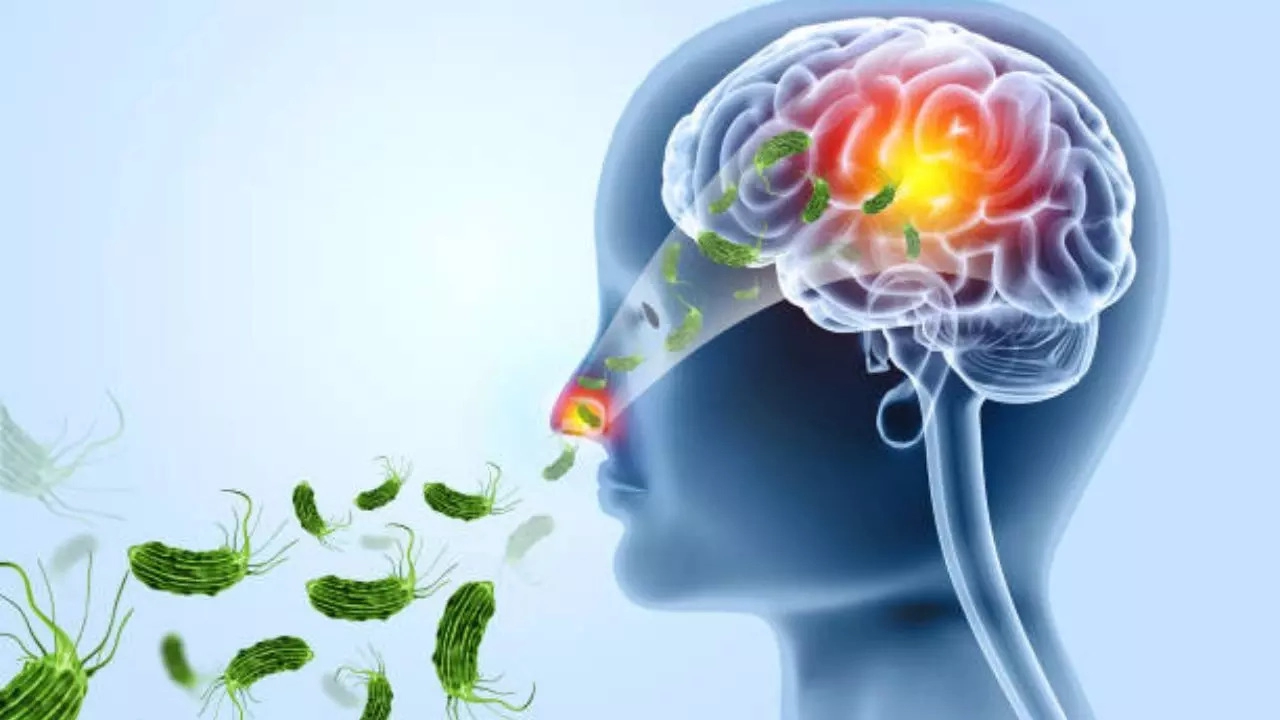Ashima Sharda Mahindra • 06 Aug 2024
What Is Amoebic Meningoencephalitis, A Rare Brain Infection Spreading Across Kerala? Know Signs And Symptoms

The infection may be linked to bathing in stagnant ponds, which serve as a breeding ground for various antigens
At least four youngsters in Kerala have been confirmed positive for amoebic meningoencephalitis – a rare brain disease that causes central nervous system infection, state health authorities reported. Among them, a 28-year-old had died of the infection on July 23.
In the last two months, seven cases of the infection have been reported in the state - from Malappuram, Kozhikode, Kannur, and Thrissur districts. Kerala Health Minister Veena George has said the infection may be linked to bathing in stagnant ponds, which serve as a breeding ground for various antigens. Water samples from the pond have been collected, and public access to it has been restricted.
According to experts, the occurrence of the disease, with a 97 per cent fatality rate among patients in their mid-20s is unusual, as previous cases this year involved only children.
What is Amoebic Meningoencephalitis?
Also known as Amoebic meningoencephalitis - amoebic meningitis, is a rare and almost always fatal disease that affects your brain and meninges. Experts say the disease is caused by the amoeba Naegleria fowleri, which is found in warm, freshwater, soil, and sometimes in poorly maintained swimming pools, hot tubs, and spas. Infection occurs when contaminated water enters the nose during water-based activities like swimming, diving, or water skiing, or when infected dust is inhaled.
According to doctors, the most common way of being infected by this type of amoeba is when infected water goes into your nose, and from there, it travels to your brain. This usually happens when you are swimming, diving, or doing something like water skiing in infected water. In extremely rare cases, the infected water can be heated tap water or swimming pool water which is not chlorinated enough.
However, you cannot be infected by swallowing infected water.
Signs and symptoms of Amoebic Meningoencephalitis infection
Doctors say you can see the signs and symptoms of PAM come on suddenly, and are severe at the start, including:
- High fever
- Extremely painful headache
- Nausea and vomiting
- Trembling
- Symptoms like those of meningitis - including a stiff neck and extreme sensitivity to light known as photophobia
- Mental health issues like confusion, anxiety and stress
- Coma
Ways to prevent yourself from getting infected
Doctors say since it is a life-threatening disease, it is important to make sure that enough is done to prevent the infection. And so, a few key things to remember, include:
- Do not swim, wade, or do watersports in warm freshwater locations, especially still waters. Do not use tap water for a neti pot or any other device that cleans your nasal passages.
- Only use distilled or sterilized water for all purposes
- Always filter your water before use.
- Use chlorine bleach liquid or tablets to disinfect your water for cleaning your nose and sinuses
- If you develop symptoms of fever or headache after going into warm freshwater, immediately visit your doctor
Get Latest News Live on Times Now along with Breaking News and Top Headlines from Health and around the world.